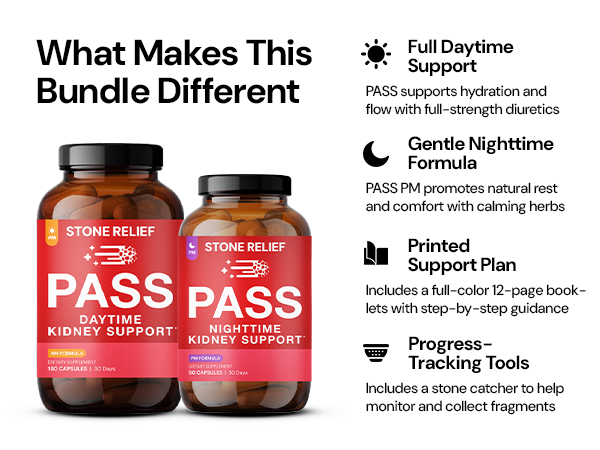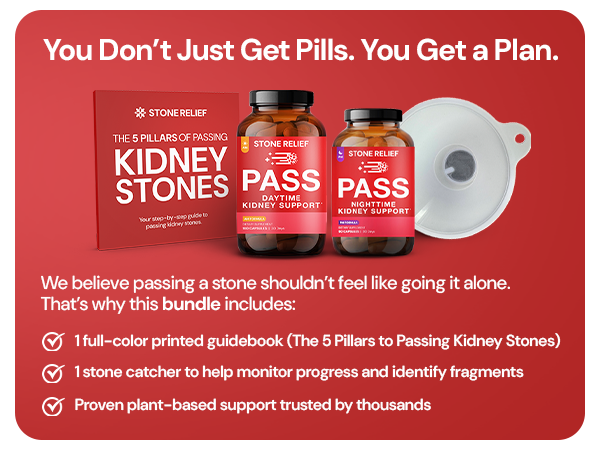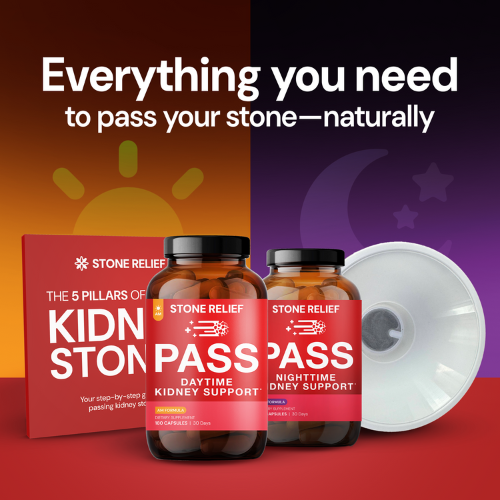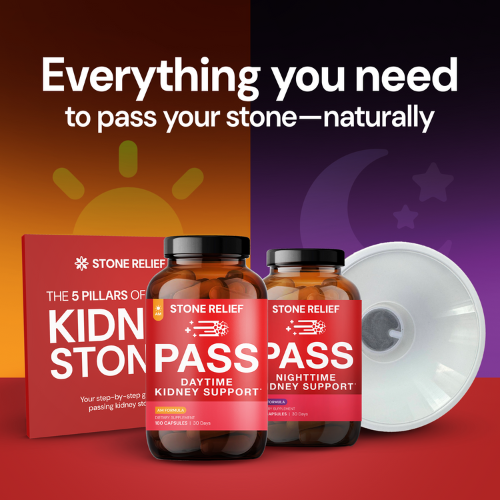How Urine pH Triggers Kidney Stones
Urine pH is one of the most important yet misunderstood factors in kidney stone formation. Whether your urine is too acidic or too alkaline, you're at risk of forming specific types of stones. In this blog, you'll learn how urine pH impacts stone risk—and how your diet plays a powerful role in controlling it.
Key Takeaways
-
Urine pH determines which kidney stones form
-
Acidic urine encourages calcium oxalate and uric acid stones
-
Alkaline urine promotes calcium phosphate and struvite stones
-
Diet is the #1 factor influencing urine pH
If you're struggling with kidney stones, there's one thing you must pay attention to above all else: your urine pH.
Most people have no idea how critical this is. I certainly didn’t when I was forming stones.
Urine pH affects nearly every stone type, from calcium oxalate to uric acid and even the rare struvite stones. And yet, it’s one of the most overlooked aspects of kidney stone prevention.
In this blog, I’ll break down what urine pH really means, how it’s influenced, and what you can do to use it to your advantage—and finally stop forming stones.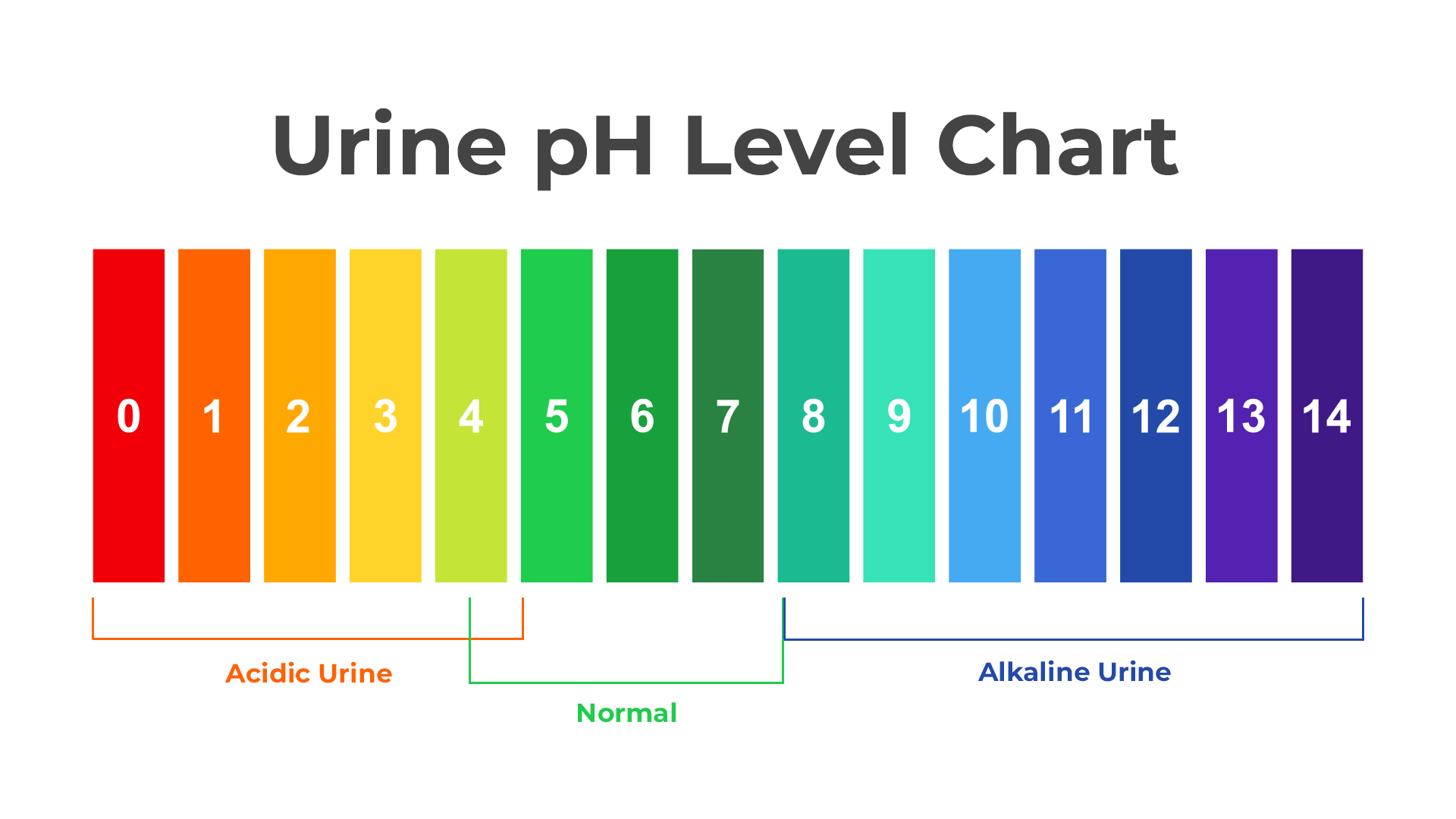
What Is Urine pH and Why Does It Matter?
Let’s start with the basics.
Urine pH is a measure of how acidic or alkaline your urine is. It’s based on the concentration of hydrogen ions in your urine.
The pH scale runs from 4.5 to 8.0 for urine, but here’s how to think about it:
-
Neutral urine: 6.5–7.5
-
Acidic urine: Below 6.5
-
Alkaline urine: Above 7.5
Most people should be somewhere in the neutral range—but if you’re forming stones, your urine is likely either too acidic or too alkaline. And each extreme sets the stage for different kinds of stones.
Let’s look at both.
🛒 Check Price & Purchase Stone Relief Pass AM/PM Bundle on Amazon
Alkaline Urine and Kidney Stones
If your urine pH is consistently above 7.5, you’re in alkaline territory.
What does that mean?
Alkaline urine sets you up for:
-
Calcium phosphate stones
-
Struvite (bacteria) stones
Why?
Because calcium prefers to bind with phosphate in alkaline urine, just like it binds with oxalate in acidic urine. And bacteria love alkaline environments, so UTIs caused by frequent alkaline urine can spiral into struvite stones.
🛒 Check Price & Purchase Stone Relief Pass AM/PM Bundle on Amazon
Who’s at risk for alkaline urine?
People eating:
-
Lots of vegetables
-
Nuts and seeds
-
Whole grains and legumes
-
Diets high in plant-based foods
Now, these foods aren’t necessarily bad—for the general population.
But if you’re part of the stone-forming population, these foods can backfire. In particular, if your ancestors came from colder climates where vegetation was scarce, your body may not be well-equipped to handle plant toxins and alkalizing diets.
For you, alkaline urine = calcium phosphate or struvite stone risk.
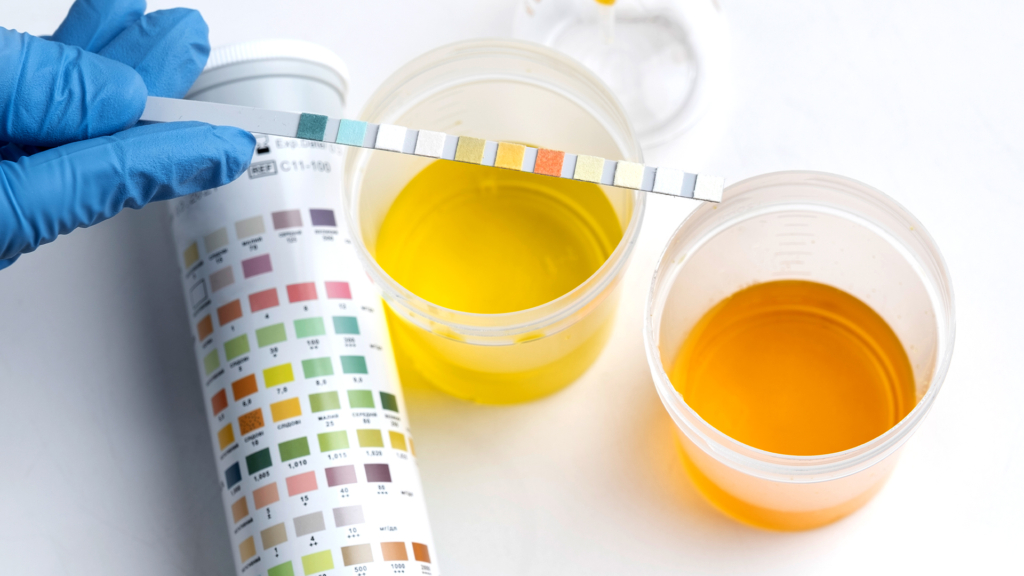
Acidic Urine and Kidney Stones
Now let’s look at the flip side.
Urine pH below 6.5 is considered acidic, and it’s a huge contributor to:
-
Calcium oxalate stones
-
Uric acid stones
Most people wrongly blame uric acid levels for uric acid stones. But the truth is: without acidic urine, uric acid stones can’t form—no matter how high your uric acid levels are.
So what’s driving urine acidity?
Diet. Always diet.
These foods acidify your urine:
-
Refined grains (like white flour and wheat)
-
Ultra-processed foods
-
Sugary drinks and soda
-
Alcohol
-
Anything high in industrial seed oils
And guess what? These are the exact foods linked to metabolic dysfunction, which 87% of the Western world is suffering from.
Metabolic dysfunction includes:
-
Abdominal obesity
-
High blood sugar
-
High blood pressure
-
Type 2 diabetes
And yes, all of these conditions drive urine pH lower, which spikes your risk of calcium oxalate and uric acid stones.
🛒 Check Price & Purchase Stone Relief Pass AM/PM Bundle on Amazon
Red Meat Is NOT the Enemy
Let’s clear this up right now.
Red meat has been blamed for everything from heart disease to cancer—and yes, even kidney stones.
But those claims are rooted in fear-mongering, not science.
Red meat is a superfood.
It does not acidify your urine in a way that promotes stone formation. It also does not raise your uric acid levels in a way that leads to kidney stones.
So don’t fall for the hype. Focus instead on cutting out refined grains, sugar, and seed oils.
How to Fix Your Urine pH Naturally
No matter which end of the spectrum you’re on—acidic or alkaline—you can fix your urine pH through your diet.
Here’s what to do:
-
Test your pH regularly using urine test strips
-
If you’re alkaline, reduce plants and shift toward animal-based foods
-
If you’re acidic, eliminate refined carbs, soda, and processed foods
-
Aim for a neutral pH range of 6.5 to 7.5
-
Stay hydrated with 3 liters of water daily, spaced evenly throughout the day
This isn’t guesswork—it’s a repeatable, measurable strategy. And when you master it, your stone risk plummets.
Final Thoughts: Master Your Urine pH, Master Your Stone Risk
Kidney stone formation isn’t random.
It’s not bad luck.
It’s not genetics.
It’s about urine chemistry—and urine pH is the key.
Whether you’re forming calcium oxalate, uric acid, or calcium phosphate stones, your pH is the invisible hand guiding it all.

